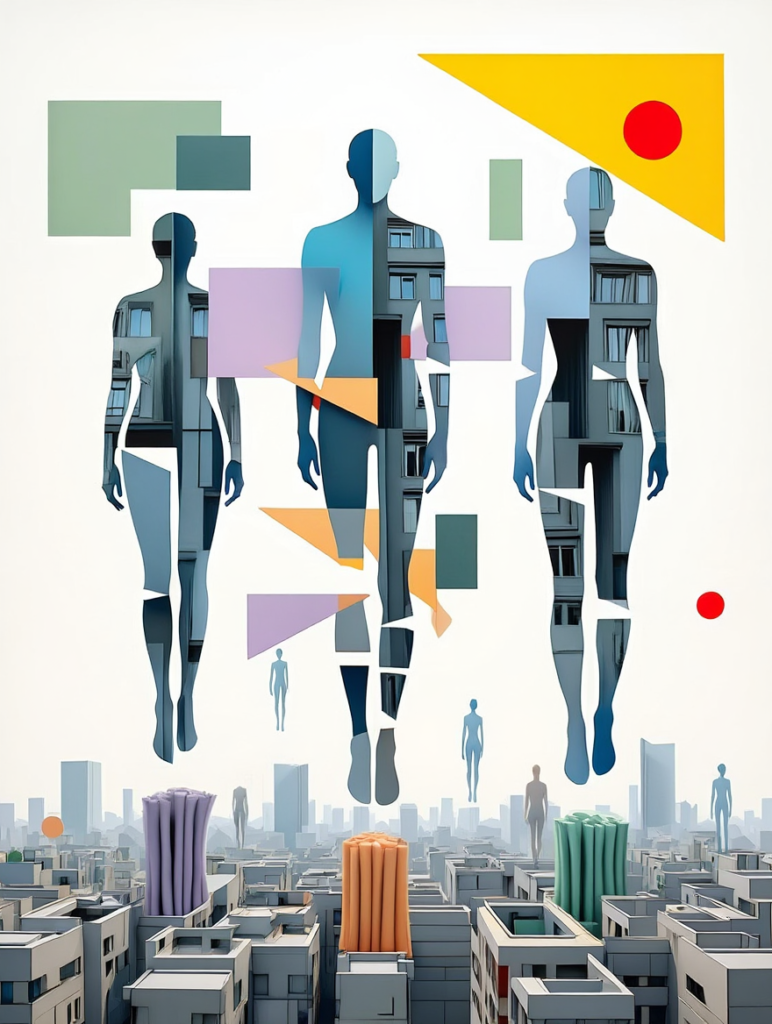Today I can finally share news that I’ve been keeping close for months: my new novel “Inhuman Humanity” will be published this spring. The manuscript has completed its journey through editing and production, and soon it will exist as an object in the world, separate from me yet carrying something of my voice.
This novel marks a significant shift in my work. While “Shattered Horizons of Tarveran” explored corporate power and fragmented reality through a speculative lens, “Inhuman Humanity” confronts our present-day world more directly. Set in a society that might be our own viewed through a slightly darkened mirror, it examines what happens when the pursuit of profit, status, and power erodes the foundations of compassion and ethical consciousness.
The narrative follows a solitary protagonist navigating a landscape of institutional cruelty and social decay. Across the city’s deteriorating streets and hollow institutions, she witnesses how faith, law, and economics are manipulated by those in power. Faced with warring factions and complicit crowds, she must decide whether to retreat into private survival or join covert efforts to spark change—a choice complicated by the realization that even resistance movements harbor their own power struggles and compromised ideals.
As I prepared the final manuscript, I was struck by how the novel’s central themes echo concerns I’ve been exploring since my earliest writing. Three years ago, I shared my poem “I Want to Tell You a Secret…” on this blog—a work that emerged from my first attempts to articulate the dissonance between official narratives and lived reality. Looking back at those lines now, I can trace a direct lineage to the novel I’ve just completed:
I’ll share a secret, hush and hear,
How sick your rotten ways appear:
Where honor’s sold for scraps of gold,
And life is bartered, souls are told.You tear the earth in greedy packs,
Choke down on metal, flame attacks;
You trample forests, crush each shoot
Beneath your vile, corrupting boot.Upstart tyrants claw for gain,
Draining all the good we strain;
You smear your finger, slick and red
In blood of creatures left for dead…
What began as a poetic outburst has evolved into a sustained fictional exploration. The “slaughterhouse, death and battle” glimpsed in the poem becomes, in the novel, a fully realized world where such brutality has been normalized, rationalized, even celebrated as necessary for progress and stability. The “golden-toothed men in expensive suits” expand into a complex ecosystem of power brokers, enforcers, and enablers whose collective actions create what Hannah Arendt famously called “the banality of evil.”
Yet unlike the poem, which concludes with a fiery prediction of comeuppance (“They will be consumed, all these parasites”), the novel refuses such straightforward moral satisfaction. Instead, it poses more difficult questions: How do we maintain our humanity in dehumanizing circumstances? Is meaningful change possible within fundamentally corrupt systems? When does compromise become complicity?
These aren’t abstract philosophical inquiries for me but urgent practical concerns. In the years since I began this novel, I’ve witnessed how quickly social consensus can shift, how easily cruelty can be justified when wrapped in the language of necessity or tradition. The boundary between dystopian fiction and current events has grown increasingly porous.
Working on this book has been both challenging and clarifying. Unlike my previous novels, which allowed for a certain aesthetic distance through their speculative elements, “Inhuman Humanity” required sustained immersion in disturbing material. There were days when I questioned whether adding another dark vision to our cultural landscape was valuable or responsible. What ultimately convinced me to continue was the belief that fiction can serve as both warning and witness—not merely depicting brutality but examining how we respond to it, how we resist it, how we find moments of genuine connection despite it.
The title itself emerged from a conversation with my grandfather during one of my brief visits to Moscow for literary events. We were discussing how systems designed to serve human needs so often become inhuman in their operation. “The problem,” he said, “isn’t that humanity has become too human—it’s that humanity has become inhuman.” That paradox—the ways in which our distinctly human capacities for abstraction, rationalization, and moral disengagement enable inhuman behavior—became the novel’s central focus.
Despite its dark subject matter, “Inhuman Humanity” isn’t a work of despair. Like all my writing, it searches for glimmers of possibility within challenging circumstances. The protagonist’s journey is not toward some grand revolutionary triumph, but toward a more modest yet perhaps more sustainable form of resistance: the creation of small, genuine human connections that the system cannot fully commodify or control.
I look forward to sharing more about the book as its publication approaches. For now, I’m both anxious and excited to see how readers will respond to this more explicitly political turn in my work.
“The opposite of cruelty is not kindness, but thoughtfulness. Kindness without reflection can itself become a form of cruelty.” (These words from Simone Weil guided me throughout the writing process)
